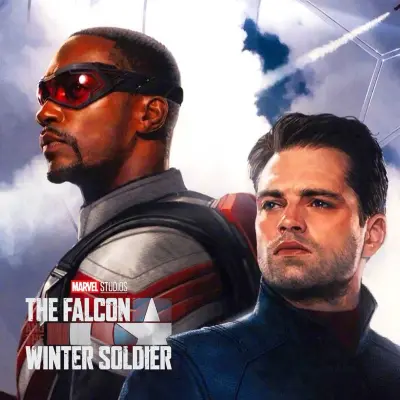The Falcon and the Winter Soldier was never equipped to explore the complex issues it raised
-

"It’s a common problem for franchises: a villain so compelling they overshadow the hero," says Alison Herman. "Darth Vader will always be Star Wars’ most iconic creation, even if his son is technically the lead. Hans Gruber is the best part of Die Hard. And in the Marvel Cinematic Universe, the gold standard of modern blockbusters, there’s Killmonger, the ostensible antagonist of Black Panther. T’Challa may have emerged victorious, but his opponent was allowed to make many more-than-fair points about Wakanda’s obligation to the African diaspora before he lost the war. Less common is the dilemma that faced The Falcon and the Winter Soldier, the MCU miniseries that just concluded its six-part run on Disney+. In its overstuffed, often unfocused plot, The Falcon and the Winter Soldier offered up a few different villains: the Flag-Smashers, an anti-nationalist guerilla group; the Power Broker, their mysterious benefactor; John Walker, the knockoff Captain America now known as the U.S. Agent; Baron Zemo, the Sokovian noble opposed to the very concept of superheroes. On their own, none of these figures were especially alluring. But as a group, the arguments they made were far more convincing than those of the ostensible protagonists. It’s not that the villains were so overwhelmingly charismatic they couldn’t help but outshine the heroes. (Well, maybe Julia Louis-Dreyfus.) It’s that the show simply assumed we would take the title characters’ side, no matter how half-hearted their rebuttals came across. That isn’t just a problem for The Falcon and the Winter Soldier. The entire point of the series was to set up Sam Wilson and Bucky Barnes as worthy heirs to Steve Rogers in future MCU titles—and in Sam’s case, quite literally. But when it takes so little to root against them, or at least not actively root for them, it doesn’t bode well for the franchise."
TOPICS: The Falcon and the Winter Soldier, Disney+, Marvel
More Falcon and the Winter Soldier on Primetimer:- Every Single Show in the Marvel Cinematic Universe, Ranked From Worst to Best
- How ‘Format Creep’ Became a Hallmark of Peak TV
- Disney+ says a Falcon and the Winter Soldier episode with toned-down graphic violence was mistakenly added to the parental control tier
- WandaVision was 2021's most-pirated show
